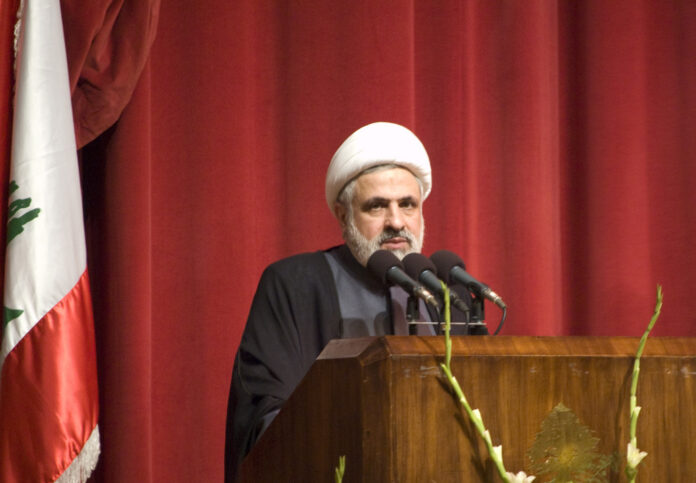Hezbollah has named Naim Qassem as its new Secretary-General following the assassination of his predecessor, Hassan Nasrallah, in an Israeli airstrike on Beirut in late September.
The announcement today elevates Qassem from his former role as deputy leader to chief of the Lebanon-based group.
In a statement, Hezbollah cited Qassem’s “commitment to the values and objectives of Hezbollah” as central to his election and included a prayer for his success in leading Hezbollah’s “resistance efforts.”
Nasrallah’s death, part of an intensified Israeli campaign targeting Hezbollah’s senior figures, left a significant gap in the Lebanese Shia movement, which Nasrallah had symbolised both within Lebanon and throughout the region.
Initial expectations had pointed to Nasrallah’s cousin, Hashem Safieddine, as a likely successor, but Safieddine was also killed in an Israeli strike shortly after Nasrallah’s assassination.
Naim Qassem, aged 71, has been widely known as Hezbollah’s “second-in-command” and is one of the founding figures of the organisation.
Born in Beirut’s Al-Basta Al-Tahta area in 1953, Qassem has a long history in both Shia religious scholarship and political activism. After earning his bachelor’s and master’s degrees in chemistry from the Lebanese University, he became active in Islamic groups in the 1970s, working alongside prominent figures such as Musa al-Sadr during the founding of the Movement of the Deprived (Al-Mahrumin).
Subscribe to our newsletter and stay updated on the latest news and updates from around the Muslim world!
Qassem’s political career has seen extensive involvement in Shia religious education and leadership. He contributed to the establishment of the Lebanese Union of Muslim Students and chaired the Islamic Religious Education Association from 1974 to 1988.
He also played a significant role in the early meetings that shaped Hezbollah’s ideology and was part of its foundational efforts in 1982. Since then, Qassem has held multiple roles, from overseeing educational and scouting initiatives to coordinating Hezbollah’s parliamentary activities and governmental affairs.
As deputy secretary-general since 1991, Qassem played a critical role in Hezbollah’s political strategy, overseeing parliamentary activities and directing the party’s governmental initiatives. He also coordinated Hezbollah’s entry into Lebanon’s national elections in 1992, a first for the group.
His tenure as a leader has spanned several major confrontations with Israel, including the July 1993 war, the April 1996 conflict, and the 2006 war, as well as more recent skirmishes.
Following Nasrallah’s death, Qassem made three televised addresses using formal Arabic to underscore a sense of resilience and resolve. In a statement on September 30, he asserted Hezbollah’s readiness to confront and resist Israeli forces as Israel launched its “Northern Arrows” campaign, including ground operations targeting Hezbollah’s positions in southern Lebanon.
In addition to his leadership roles, Qassem is an established author, known for works such as “Hezbollah, detailing the party’s history and aims;” “Imam Khomeini: Between Originality and Renewal;” and “The Resistance Society: The Will to Martyrdom and the Making of Victory,” all reflecting his ideological influence within Hezbollah.
Hezbollah’s statement also expressed hope for divine guidance as Qassem assumes the leadership, reaffirming the group’s stance amidst a period of intensified Israeli pressure and ongoing violence in the region.
Israel has not issued any direct comment as yet about Qassem’s appointment.























